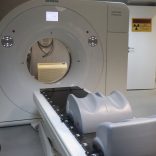Most African countries will not reach SDG child mortality goal
Mozambique: Prosecutors, state officials to debate fight against corruption, economic, financial and environmental crimes

The national meeting of the Central Office for Combating Corruption is taking place at the office of the attorney-general, to discuss the combat against illicit enrichment and the recovery of assets, banks' duty to communicate suspect transactions. and the computerisation of records to prevent and fight corruption. File photo:Notícias
Public prosecutors and state representatives in Mozambique are gathering in Maputo on Wednesday and Thursday to discuss the work of the office of public prosecutions in the fight against corruption, economic, financial and environmental crimes.
The Central Office for Combating Corruption is organising the debate, as part of its sixth national meeting with a view to developing strategies to improve its performance.
Between 2015 and 2017, Mozambique lost six points in the corruption perception index published by Transparency International, according to that organisation’s latest report on the subject, published earlier this year. Mozambique ranked 157 out of the 183 countries now covered by the index.
Mozambique’s president, Filipe Nyusi, has consistently stressed the need to combat corruption in his speeches, and some investigations have been started.
However, organisations campaigning against corruption such as Mozambique’s Centre for Public Integrity have been calling for more action. The centre points out the lack of accountability in the case of the ‘hidden’ state loans as one of the main reasons for the country slipping down the Transparency International ranking.
Loans taken out by public enterprises in 2013 and 2014 that were guaranteed by the state without informing parliament have left a $2-billion hole in the public accounts – about one-eighth of the country’s gross domestic product at the time they were contracted.
The national meeting of the Central Office for Combating Corruption is taking place at the office of the attorney-general, to discuss the combat against illicit enrichment and the recovery of assets, banks’ duty to communicate suspect transactions. and the computerisation of records to prevent and fight corruption.












Leave a Reply
Be the First to Comment!
You must be logged in to post a comment.
You must be logged in to post a comment.